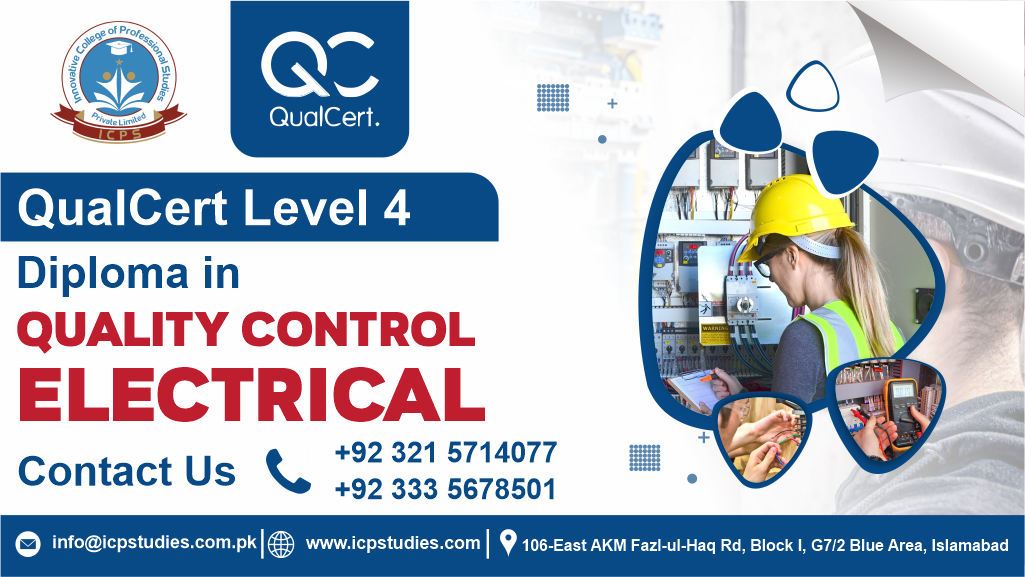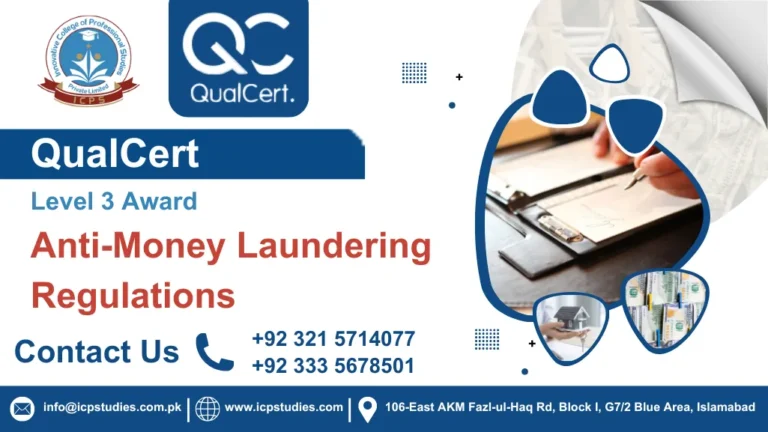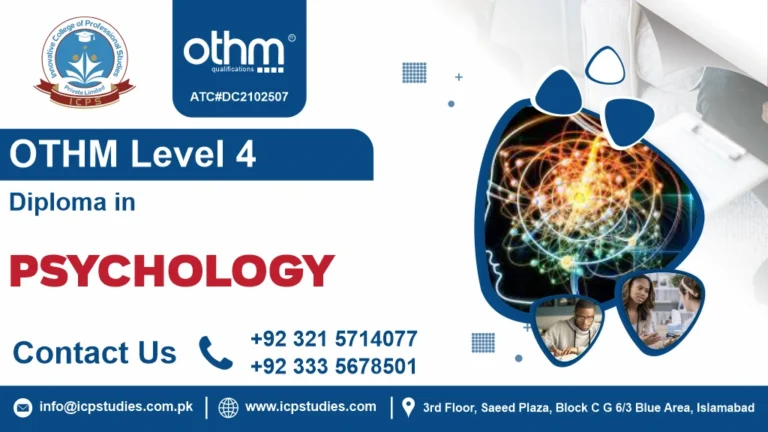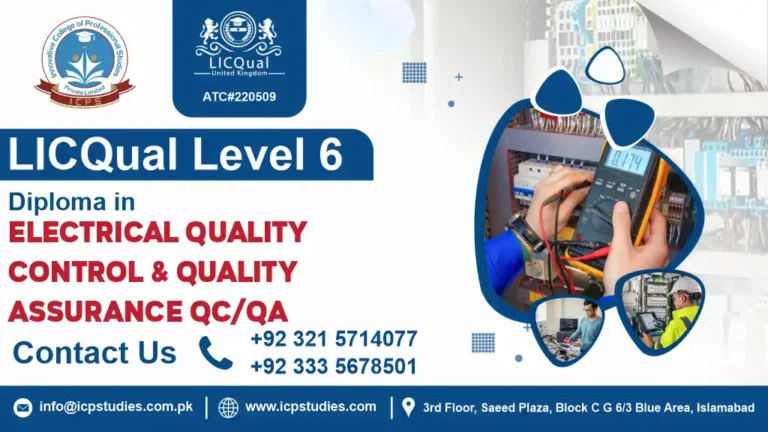The Level 4 Diploma in Quality Control (QC) Electrical is an essential qualification for anyone looking to advance their career in electrical engineering and specialize in quality control. This course offers the skills and knowledge needed to ensure that electrical systems, components, and installations meet rigorous standards of safety, performance, and compliance. Whether you’re looking to start a new career or build on your existing experience, this qualification will provide you with the practical expertise to succeed in the electrical quality control field.
The Level 4 Diploma in Quality Control (QC) Electrical is designed to provide a thorough grounding in electrical quality control, with a particular focus on system reliability, performance testing, and regulatory compliance. The course is ideal for professionals already working in the electrical engineering field who want to specialize in quality assurance, as well as those who are looking to pursue a career in this vital area.
The Level 4 Diploma in Quality Control (QC) Electrical offers a comprehensive pathway for those seeking to advance their careers in electrical engineering and quality assurance. With a strong emphasis on both theory and practical skills, this qualification will provide you with the tools necessary to excel in quality control roles within the electrical industry.
If you’re ready to take the next step in your career, gain industry-recognized expertise, and ensure electrical systems meet the highest quality standards, the Level 4 Diploma in QC Electrical is the perfect course for you.
All About Level 4 Diploma in Quality Control ( QC ) Electrical
Course Overview
The Level 4 Diploma in Quality Control (QC) Electrical is a specialized qualification designed for individuals looking to enhance their expertise in ensuring the quality, safety, and compliance of electrical systems. This course provides an in-depth understanding of quality control principles specific to electrical engineering, equipping you with the practical skills necessary to manage and maintain high standards in electrical installations, circuits, and systems.
Whether you are an experienced electrical professional seeking to specialize in quality control or a new graduate aiming to build a strong foundation in electrical quality assurance, this course will offer you comprehensive knowledge and hands-on experience. You will learn to implement industry-standard testing, calibration techniques, and health and safety protocols, ensuring that electrical systems meet both regulatory requirements and operational excellence.
By the end of the course, you will be well-prepared to assess, inspect, and improve electrical systems, leading to better career prospects and positioning yourself as a key player in the growing field of electrical quality control.
Study Units
Advanced Structural Quality Control
Non-Destructive Testing (NDT) Techniques
Quality Control for Large-Scale Projects
Advanced Material Testing and Analysis
Management of Quality in Construction Projects
Legal and Ethical Issues in QC Practices
To enroll in the Level 4 Diploma in Quality Control (QC) Electrical, candidates should meet the following entry requirements:
- Educational Qualifications:
- A Level 3 qualification in Electrical Engineering, Electronics, or a related field (e.g., a Level 3 Diploma in Electrical Engineering) OR
- A Bachelor’s degree in Electrical Engineering or a similar discipline (for those looking to specialize in quality control).
- Professional Experience:
- While prior professional experience is not mandatory, having some practical experience in electrical systems or engineering (typically 1–2 years) will be advantageous in understanding the course content and its applications.
- Basic Knowledge of Electrical Systems:
- A foundational understanding of basic electrical concepts, circuits, and components is necessary to succeed in the course. This could come from previous studies or relevant work experience.
- English Language Proficiency:
- For non-native English speakers, evidence of proficiency in English may be required. Acceptable qualifications include IELTS, TOEFL, or proof of prior education in English.
- Computer Literacy:
- Basic computer skills are recommended, as the course may involve using software tools for testing, documentation, and reporting.
Meeting these entry requirements ensures that you have the foundational knowledge and skills necessary to succeed in the Level 4 Diploma in QC Electrical and make the most of the course content.
The Level 4 Diploma in Quality Control (QC) Electrical is designed for a range of professionals and individuals who want to advance their expertise in electrical engineering and specialize in quality control. This course is perfect for:
- Electrical Engineers and Technicians
- Those already working in electrical engineering who wish to specialize in quality control and ensure that electrical systems meet industry standards, regulations, and operational requirements.
- Quality Control Professionals
- Individuals with a background in quality control looking to expand their knowledge in the electrical sector, focusing on ensuring compliance, performance, and safety in electrical systems.
- Project Managers and Supervisors
- Engineering managers or supervisors overseeing electrical systems who want to enhance their ability to manage quality assurance processes and ensure electrical systems meet the highest standards of safety and efficiency.
- Graduates in Electrical Engineering
- Recent graduates with a degree or diploma in electrical engineering who want to gain practical skills and specialize in quality control to boost their career prospects.
- Anyone Interested in a Career in Electrical Quality Control
- Individuals looking to enter the growing field of electrical quality control, offering opportunities to build a solid foundation in electrical systems while specializing in testing, inspection, and compliance.
- Professionals Seeking Career Advancement
- Those aiming for career progression in electrical engineering or quality control roles, looking to increase their qualifications and expertise to open doors to senior or managerial positions in the industry.
Whether you’re looking to specialize in electrical quality control or enhance your existing knowledge, this course provides the comprehensive training and industry-specific skills necessary to succeed in the field.
Learning Outcomes
Upon successful completion of the Level 4 Diploma in Quality Control, students will gain proficiency in the following key areas:
Advanced Structural Quality Control
- Develop expertise in advanced techniques for ensuring the integrity and safety of structural elements across various projects.
- Learn how to apply quality control systems in structural design and construction to minimize defects and ensure adherence to industry standards.
- Gain the ability to assess, manage, and mitigate risks related to structural quality in complex construction projects.
- Master the use of advanced tools and technologies to monitor and test structural quality throughout the construction phase, ensuring optimal results.
Non-Destructive Testing (NDT) Techniques
- Understand the principles and applications of non-destructive testing (NDT) methods, including ultrasonic, radiographic, and eddy current testing, for evaluating material properties without causing damage.
- Learn to select appropriate NDT methods based on material type and project requirements.
- Understand the limitations and strengths of various NDT techniques in detecting structural flaws, cracks, and hidden defects.
- Develop the ability to analyze and interpret NDT results, using insights to guide decision-making and uphold quality standards in construction and manufacturing environments.
Quality Control for Large-Scale Projects
- Learn effective strategies for managing quality control in large-scale construction or manufacturing projects.
- Develop skills to plan, monitor, and control quality throughout the entire project lifecycle to maintain consistency and meet client expectations.
- Understand the significance of establishing project-specific quality standards, schedules, and resource management to ensure ongoing quality throughout large projects.
- Gain expertise in managing multiple teams, subcontractors, and suppliers while maintaining high-quality standards and minimizing risks.
Advanced Material Testing and Analysis
- Gain an in-depth understanding of advanced material testing methods used to evaluate the strength, durability, and performance of materials in construction and industrial applications.
- Learn how to conduct thorough tests on a range of materials, including metals, polymers, and composites, to assess their suitability for specific applications.
- Develop the ability to interpret complex material test data to make informed decisions regarding material selection and quality.
- Stay up-to-date on the latest advancements in material testing technologies, utilizing them to enhance product quality and performance.
Management of Quality in Construction Projects
- Master the principles of quality management within the construction industry, focusing on the creation and implementation of effective quality assurance plans and procedures.
- Learn to establish quality benchmarks, monitor performance, and ensure continuous improvement throughout the construction process.
- Develop the skills needed to manage quality control teams, liaise with various stakeholders, and ensure compliance with regulatory and contractual requirements.
- Gain expertise in conducting quality audits, inspections, and documentation to ensure successful project completion that meets both client expectations and industry standards.
Legal and Ethical Issues in QC Practices
- Gain a comprehensive understanding of the legal and ethical aspects of quality control practices, including compliance with regulatory standards and industry codes of conduct.
- Learn to identify and address ethical dilemmas that may arise during quality control processes and decision-making.
- Understand the consequences of non-compliance with legal standards and how to mitigate risks by adhering to established quality control regulations.
- Develop an in-depth understanding of contractual obligations and the importance of maintaining ethical standards in client relationships and throughout quality management practices.
FAQs Level 4 Diploma in Quality Control ( QC ) Electrical







